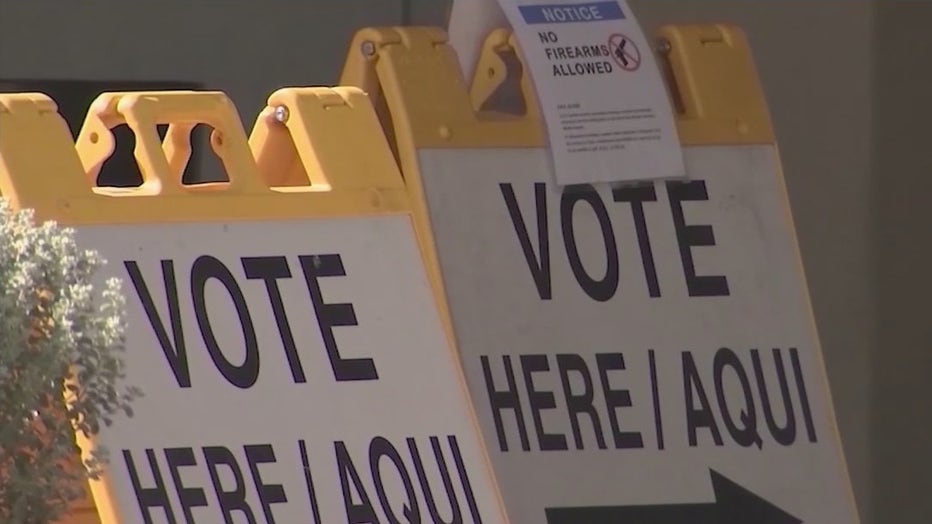Arizona Gov. Katie Hobbs signs bill giving counties more time to count votes
PHOENIX (AP) - Arizona Gov. Katie Hobbs signed into law a proposal that will give election workers more time to tally votes after county officials complained that a 2022 change in law would make it difficult to complete counting votes in time if the results were close enough to trigger a mandatory recount. In a social media posting Friday afternoon, the Democratic governor said, "With this bill, we’re making sure Arizonans will have their voices heard at the ballot box."
The bill, which was approved Thursday by the Republican-majority Legislature, will move up Arizona’s primary election one week to July 30, alter the timeline during which voters can "cure" early ballots that are missing signatures from five business days to five calendar days and enshrines standards for verifying ballot signatures into law.
It applies to Arizona’s primary this summer and general election in the fall but won’t affect the state’s March 19 presidential primary.

Voting sign
County officials who are expecting an increase in mandatory recounts had warned for months that if they weren’t given more time, Arizona could miss federal deadlines for sending general election ballots to military and overseas voters and for certifying the state’s voting results.
Counties had said Friday was the last day to make the changes before this summer's primary becomes untenable.
The changes are prompted by a 2022 measure that increased the threshold for recounts, which are now triggered when candidates are within 0.5% of each other. The previous margin for a mandatory recount was one-tenth of 1%.
Arizona’s results from the 2020 presidential race, when Democrat Joe Biden beat Republican Donald Trump by 10,457 votes, didn’t go to an automatic recount. Under the new threshold, the race would have triggered a mandatory recount.
Democrats who had complained that the proposal pushed by Republicans wasn’t the "clean fix" they were looking for ended up voting for the measure.
Republicans say the signature verification standards were needed to guard against breaching signature verification protocols that might be made to meet a deadline. They point out the standards are already contained in a 2020 signature verification guide issued by Hobbs when she served as Arizona’s secretary of state.
Hobbs, however, vetoed a 2023 bill declaring that the standards in the guide are to serve as the minimum requirement for comparing signatures. In her veto letter, the governor said it was more appropriate to include the standards in the state’s elections procedure manual or in guidance from the secretary of state’s office.

